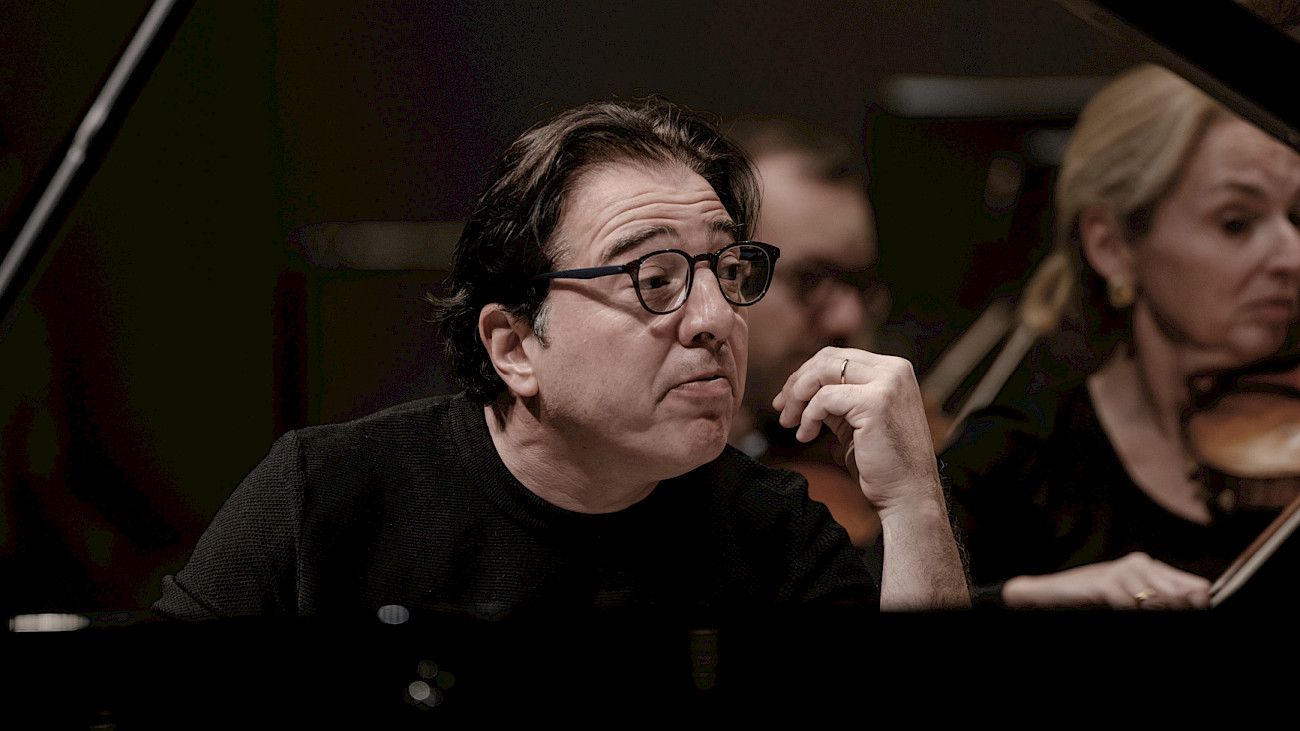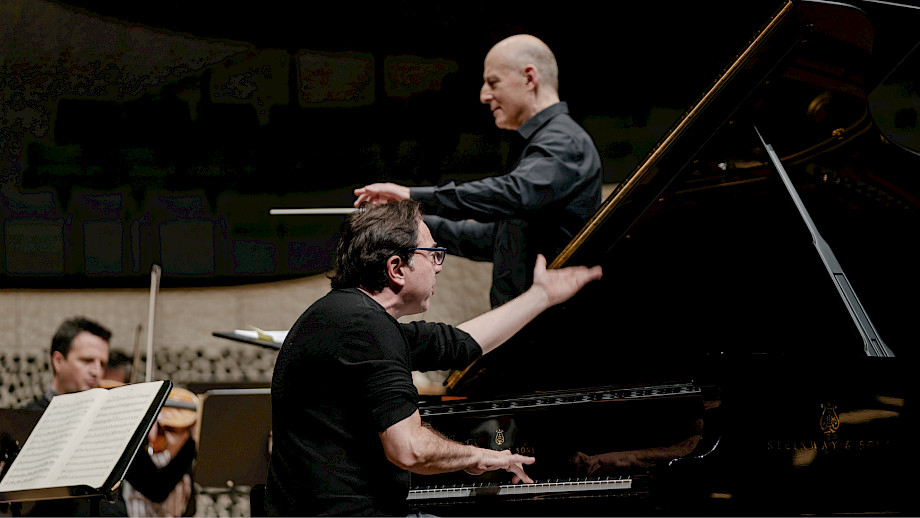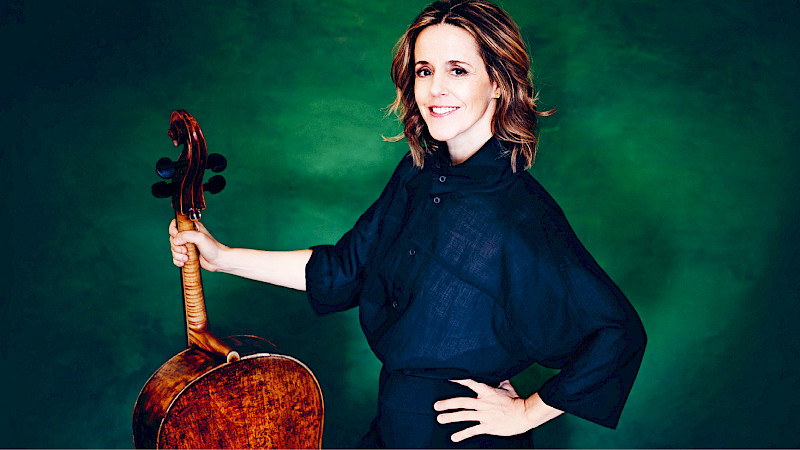
The Unpredictable
No one from the top league of pianists divides the audience as much as the exceptional Turkish musician Fazıl Say. He is now playing Mozart and his own works with us.
Hamburg, Elbphilharmonie, November 2022. In front of the Tonhalle-Orchester Zürich, Fazıl Say sits, no: sways behind the grand piano. Everything is in motion, his upper body, his gaze, his feet; sometimes he turns so much towards the orchestra that he almost threatens to lose his balance. And when his left hand has nothing else to do, he conducts behind Paavo Järvi's back. You can't watch this Fazıl Say, says one listener afterwards in the interval.
Others, however, rave in the highest tones. For the peace and quiet that the pianist did not seem to find at all on this podium was musically all the more perfect. Infinitely quiet and simple, tender and loving, Say played the slow movement of Mozart's Piano Concerto No. 23. And in harmony with the music, even the conducting gestures did not seem strange, but coherent: As if he personally wanted to carry his notes and melodies into the orchestra.
It was a performance typical of the Turkish pianist born in 1970, who is appearing this season as a focus artist at the Tonhalle Zürich. He polarises like only a few soloists in the top league; some consider him a genius, others a charlatan. But he is one thing above all: a pianist who always goes all out.
Fazıl Say burns for the music, he seems to reinvent the works every time, to relive them. He plays radically subjectively, impetuously, intensely; he leaves the cultivated reproduction of a score to others. His gestures and his occasional humming along are by no means part of a show; he needs them to get more out of the piano than is actually in it – which is something different every time. When he plays Mozart's Piano Concerto No. 23 in Zurich soon, you can bet on two things: that he will do it differently than in Hamburg. And that it will certainly not be boring.
Contradiction personified
Fazıl Say is unpredictable, in the best sense of the word. A musical adventurer and lateral thinker, a thoroughly authentic personality. You experience it not only in concert, but also in conversation with him. He can be charming or attacking, eloquent or monosyllabic. He can admit with unusual openness that something sometimes goes wrong in his concerts, or that he has no access to some of Debussy's Préludes. He can also analyse with razor-sharp precision what is currently going wrong in the music business (too little risk-taking!). And even if he hardly expresses himself politically in public since he was accused of "denigrating religious values" in Turkey in 2012: What he stands for, he nevertheless makes unmistakably clear.
For example, when he talks about his mission. He has one, even if he would probably not use the word. He wants to spread classical music culture in his home country, and vice versa, he brings Turkish sounds to the West. He does it, so to speak, as a personified contradiction: "Turkey and the profession of a pianist are two things that don't really go together," he once said; he first had to build bridges before he could cross them himself.
For years, he performed in East Anatolian villages where there were neither concert halls nor grand pianos - and he would probably still be doing so today if a sponsor could still be found to support the logistically complex project. Conversely, he brings Turkish melodies and rhythms to Western European concert halls in his own works. Some of them he collected in the villages like Bartók once did, others he grew up with.
Hypnotic music
At the Tonhalle Zurich, he will present some of these works in a chamber music programme with singer Serenad Bağcan. He will also play his latest piano sonata "Yeni hayat", with which he has arrived at opus number 99; composing is not a sideline for him, but just like playing, a necessity.
How much was also to be experienced in Hamburg's Elbphilharmonie. As an encore after the Mozart concert, Fazıl Say played his "Black Earth" from 1997, which is also on his Zurich chamber music programme. It is an almost hypnotic work in which he heaves a three-note motif into the basses with his right hand time and again - while plucking the strings inside the grand piano with his left, as if he were operating a traditional Turkish instrument.
This encore also divided the audience into the irritated and the fascinated. For it catapulted one mercilessly out of Mozart's sound world, on the one hand. On the other hand, wasn't Mozart enthusiastic about the sounds of "alla turca"? Didn't he also take great pleasure in startling the traditionalists?
One thing is certain: Fazıl Say's aim with such a combination is not to provoke. It's about showing who he is, how he sees music and the world. And that there are more important and exciting things than trying to please everyone.
Translated with DeepL.com






